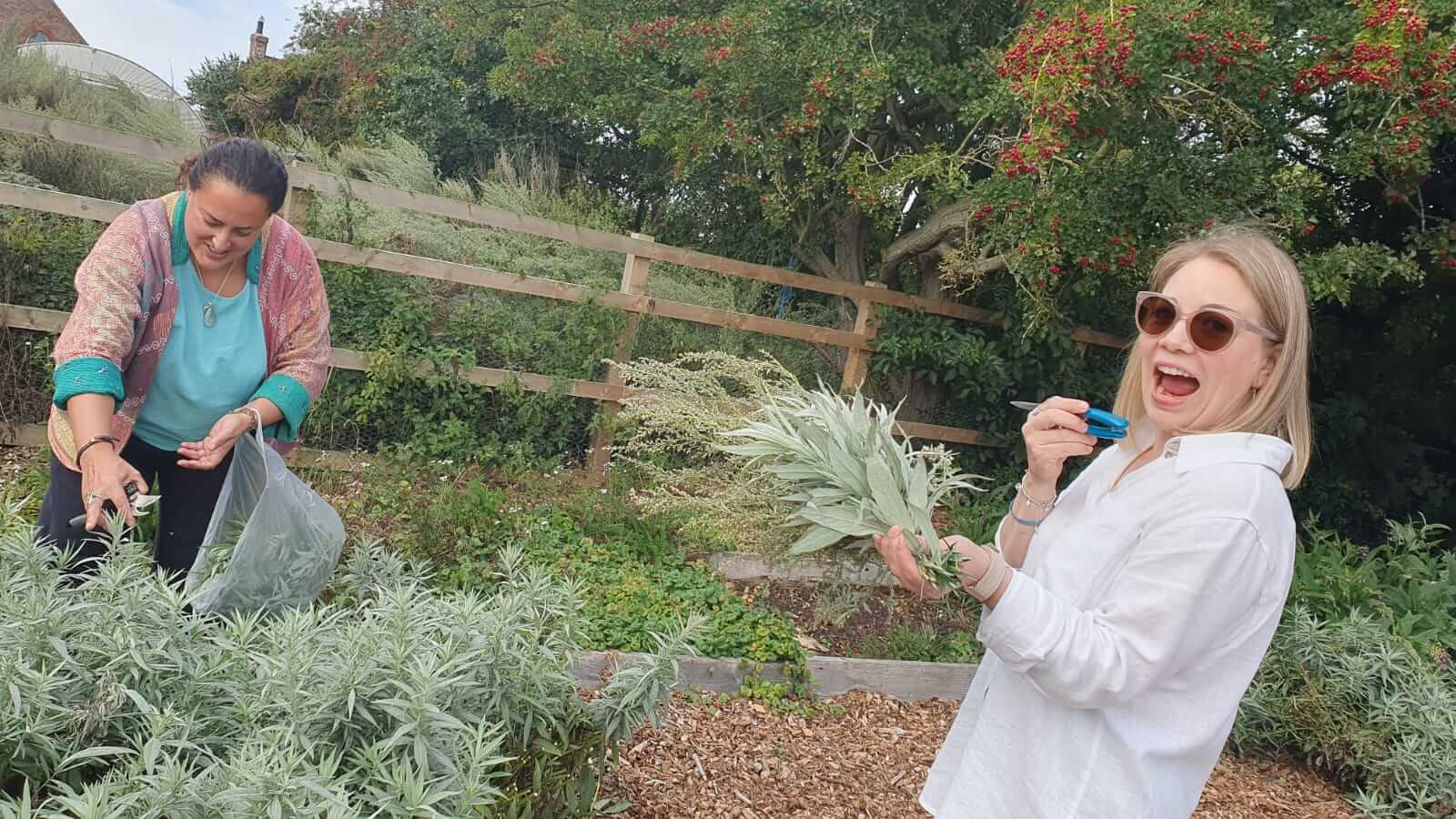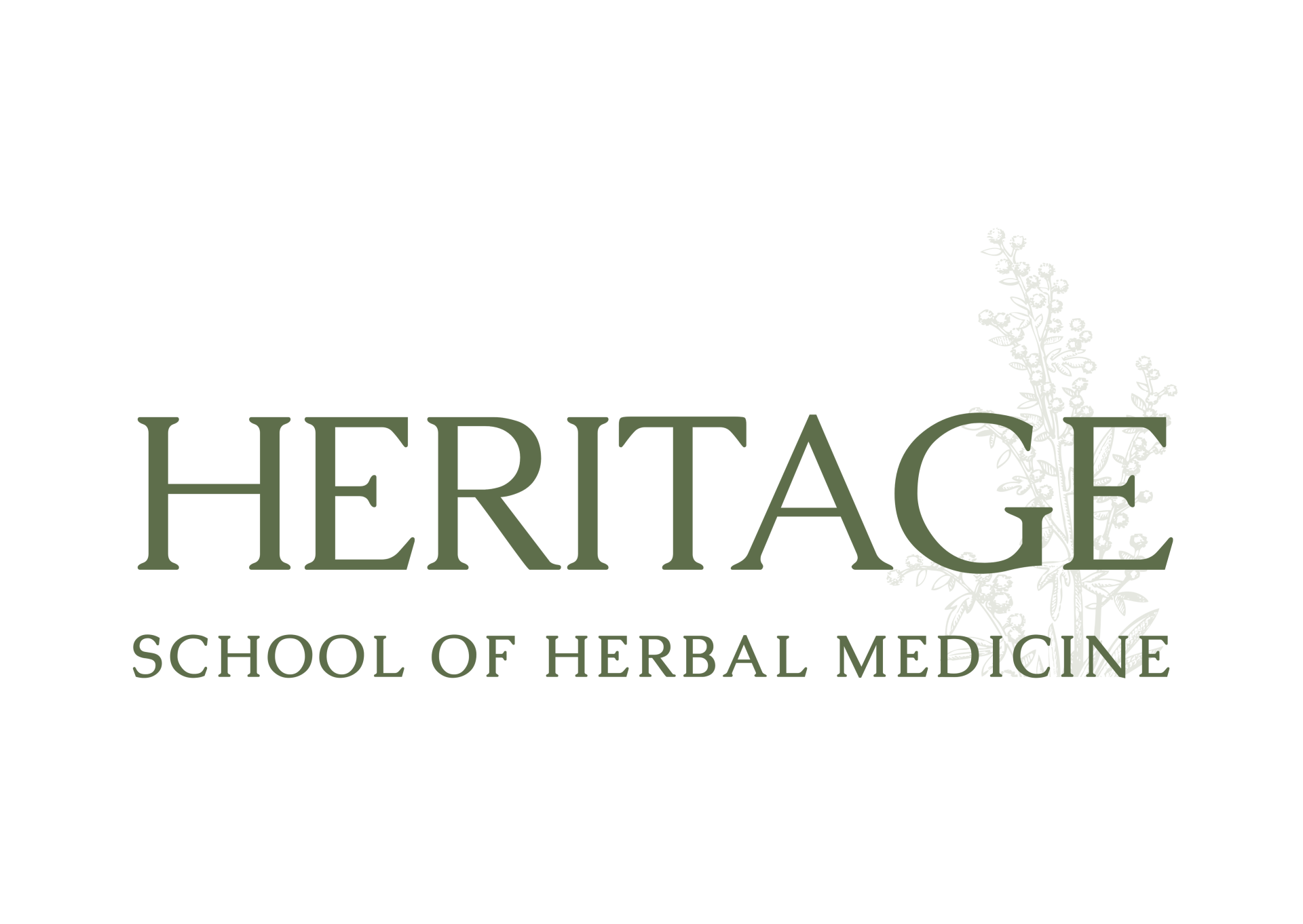If you’re wondering how to become a herbalist, you need look no further than our second-year students. They’ve just gathered again in our yurt for their autumn in-person session after our summer break and it was a wonderful reunion full of laughter, connection and ever-deepening knowledge.

How to Become a Herbalist - Gather With Your Community
One thing you cannot beat when learning how to be a herbalist is gathering with your community. Coming together to witness the changing of the seasons, to share stories and laughter, hugs and good food - this is what brings herbalism alive. You can learn herbalism on your own, of course. But the alchemy that happens when you mix increasing knowledge with building beautiful friendships is something you can’t bottle. When our second-years entered the yurt again this season, the thrill of being together again and the release of being able to just exhale and be yourself was tangible. I never tire of seeing our students’ connections grow. By this point in the second year, we are all good friends and our gathering truly feeds our souls.
Harvest When You Can and Share the Bounty
The herb garden has been incredibly abundant this year, but time to harvest over the summer has been scarce, so everyone was invited to bring their secateurs to harvest what they wanted and take home some herbal goodies from the garden to transform into whatever they fancied. Our Garden Queen - the beautiful mugwort at the apex grown from plug plants at Earthsong Seeds (which I highly recommend!) - needed her bounty sharing out both so everyone could enjoy working with some wonderful fresh mugwort, as well as to keep her from spreading and taking over the entire space! I won’t name names, but mischief and cackles were definitely afoot! Some students chose to collect bundles of garden sage, others hopped for the spectacular elderberries just within reach. One student harvested some of our white sagebrush (Artemisia ludoviciana), which we typically grow for smudging, to make a slow-infused oil. It’s going to be magnificent!
Build Your Skills Layer By Layer
In year two, we deepen our explorations of the inner workings and dynamics of the body so we can better understand which herbs will provide support. At our autumn gathering, we explored the interplay of the doshas and energetic pathogenesis (how imbalance evolves in the body and which specific energetic dynamics are at play), as well as beginning to work with five-herb formulas. We really got down into the nitty gritty of it with a few examples students shared, but here’s the most important lesson that emerged from that part of our day - in herbalism, as in anything, we can make things as complicated or as simple as we want. We can stretch our minds to have a very thorough look at an imbalance from many angles or we can observe the simpler qualities and characteristics of the elements as they manifest themselves. Either way, we’re likely to end up with a similar initial herbal remedy, but part of learning how to become a herbalist is like being a diver. We gradually increase our skill and capacity to dive to deeper and deeper depths, always coming up to the surface in between. This means you have a more detailed understanding of what’s happening beneath the surface and that you can choose just how deeply you want to dive each time you’re paring herbs and people.
How to Become a Herbalist - Take a Field Trip
Over the summer, one of our second-year students met Gwen of Green Growers in Nafferton and instantly knew we needed a field trip. So after our autumn gathering, the majority of the cohort - myself included - popped over for a tour. Besides growing an abundance of organic vegetables and fruit, Gwen also grows an assortment of herbs, so students were able to purchase certified organic produce and medicinal herb plants to take home. Walking through her land was like taking a tour of a veritable Garden of Eden (minus the overtones of guilt!) and inspired us all. Operating a closed growing system, learning about Gwen’s process of making compost was riveting and reminded us all of something very important - You are what you eat eats, and ultimately, what all our food is eating (whether plant or animal) is soil. So are you eating living, breathing nourishment or empty, sterilised dirt? Quite literally food for thought. So it was only appropriate that many of us headed out for dinner together afterwards! We all enjoyed the outing so much, so I am sure this will not be the last time our school community visits Gwen, broadening our learning, widening our connections and weaving the web of local people supporting each other. Thank you again for hosting us, Gwen!
Learn Regularly and Rhythmically
Now that the spark of learning has been reignited, we’re back to our biweekly live Zooms, weaving our way through the various pathways of the body. We’ll spend the first four sessions on entrances and what we take into our bodies. This first session brought with it the potent reminder that we have, in essence, five mouths (six for us women) - our mouths, eyes, ears, nose, mind and genitals - and that each of them are consuming from the world around us (food, media, sounds, sights, information, etc.). However, much of what we consume is not actually digestible; hence, dis-ease manifests in the body. So our optional additional exploration for the next few weeks is to bring our awareness to our many mouths and to what each of them are consuming, as well as choosing any of the aspects of recalibrating the senses we discussed in the spring to help us align to the rhythms of the seasons and practicing them. I can’t wait to hear what observations come through.
If our students' journeys are inspiring you and you’re here in the UK, you’re very welcome to join us on our intensive herbalism course - Awaken Herbal Wisdom - which spans all four seasons. With up to three years of development available, our course gets herbalism both deep into your bones and your daily life, without either having to do a clinical degree or a traditional full-time apprenticeship. Although it is intense, it’s suitable for a wide range of herbalists, including beginners!
Be sure to join our mailing list to hear more about what the current cohorts are up to, learn some of the golden nuggets that emerge from our sessions and receive other school updates. Enrolment opens after dates are announced each spring for the following year, and places are filled on a first-come, first-served basis. If you’re ready to join us on the journey, you can request an application to join an upcoming cohort.
Whatever your next step is with learning herbal medicine, I hope you enjoy the journey!
At the Heritage School of Herbal Medicine, our practice of herbalism is rooted in the belief that we must remember, reclaim and relearn our knowledge of our bodies, our autonomy and how to work with plant medicine in order to bring control of our own health back into our families and homes for a sustainable future for ourselves and the planet. Through our intensive herbalism course, we facilitate the development of confident, empowered herbalists, attuned to the messages of their bodies and the natural world. Living the deep wisdom of herbal medicine within themselves, their homes and their communities, they uplift themselves and others, creating a stronger society organically. We do hope you'll join us on your journey!

